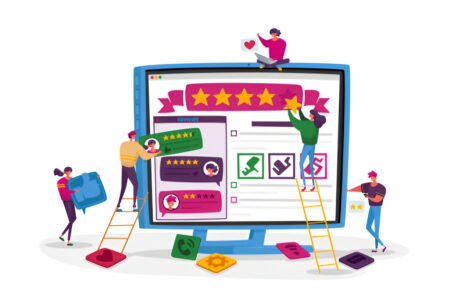A digital marketing strategist is a professional who plans, implements, and manages an organization’s online marketing strategies to achieve measurable business goals. In 2025, as digital channels become more complex and consumer expectations rise, the role of the strategist is more vital than ever.
This article will guide you through the essential skills, actionable tips, career-building steps, and future outlook you need to succeed as a digital marketing strategist in today’s rapidly evolving landscape.
Understanding the Role of a Digital Marketing Strategist

A digital marketer typically executes campaigns and manages daily marketing activities, while a digital marketing strategist takes a broader view—designing cohesive, long-term strategies that align with business objectives. The strategist is responsible for:
Planning: Setting campaign goals, choosing the right channels, and mapping out the customer journey.
Execution: Overseeing the rollout of campaigns and coordinating with teams.
Analysis: Tracking key metrics, analyzing data, and adjusting strategies for better results.
Optimization: Continuously refining tactics based on performance and market trends.
The strategist’s impact is significant: a well-crafted strategy can drive brand growth, increase ROI, and position a business ahead of its competition.
Why 2025 Is a Pivotal Year for Digital Marketing Strategy
The digital marketing landscape in 2025 is shaped by several key trends:
AI and Automation: Marketers must leverage AI for content creation, data analysis, and campaign automation to stay competitive.
Privacy Changes: New regulations (like GDPR and CCPA) require ethical data collection and transparent customer communication.
Emerging Platforms: Social commerce, micro-communities, and new content formats are changing how brands interact with audiences.
Continuous Learning: With rapid technological change, adaptability and ongoing education are essential for long-term success.
Employers and clients now expect strategists to not only understand these trends but also to anticipate and adapt to them quickly.
Essential Skills Every Digital Marketing Strategist Needs in 2025
1. Data Analytics & Interpretation
Tools to Master: Google Analytics 4, AI-powered analytics platforms, and data visualization tools.
Application: Turn complex data into actionable insights that inform strategy and demonstrate ROI.
2. AI & Automation Proficiency
Use Cases: AI for content generation, audience segmentation, and predictive analytics.
Tools: Automation platforms for campaign management and reporting (e.g., HubSpot, Marketo).
3. Advanced SEO & SEM Strategies
Trends: Optimize for voice and visual search, use AI-driven keyword research, and adapt to evolving paid advertising landscapes.
Best Practices: Combine organic and paid tactics for maximum visibility.
4. Content Strategy & Storytelling
Approach: Develop multi-channel campaigns and leverage interactive, video, and AR/VR content to engage modern audiences.
Goal: Create cohesive brand narratives that resonate across platforms.
5. Social Media & Community Building
Platform-Specific Strategies: Understand the nuances of each platform, from TikTok to LinkedIn, and build micro-communities around your brand.
Engagement: Partner with influencers and encourage user-generated content.
6. UX, CRO, and Customer Journey Mapping
Focus: Design seamless digital experiences and use conversion rate optimization (CRO) techniques to guide users from awareness to action.
Tools: Customer journey mapping software and A/B testing platforms.
7. Privacy, Ethics, and Compliance
Regulations: Stay updated on privacy laws and ensure ethical data use.
Trust: Build consumer trust through transparency and responsible marketing practices1.
Must-Have Tools for Digital Marketing Strategists in 2025
AI-Powered Content & Analytics: Jasper, ChatGPT, Google Analytics 4.
Automation Platforms: HubSpot, Marketo.
Social Listening & Engagement: Hootsuite, Sprout Social.
Project Management: Asana, Trello, Monday.com.
How to Build Your Digital Marketing Strategist Career
1. Education & Certifications
Recommended Courses: Google Analytics Certification, Meta Blueprint, HubSpot Academy, and advanced degrees like an MSc in Strategic Marketing.
Continuous Learning: Stay current with webinars, online courses, and industry blogs.
2. Building a Personal Brand
Showcase Expertise: Share insights on LinkedIn, Medium, and relevant forums.
Networking: Join professional communities and attend industry events to connect with peers and leaders.
3. Gaining Real-World Experience
Start Small: Freelance, intern, or work on side projects to build your portfolio.
Show Results: Highlight measurable outcomes in your case studies and resume.
Pro Tips for Standing Out as a Digital Marketing Strategist
Develop a unique strategic approach by combining creativity with data-driven decision-making.
Stay ahead of trends by regularly updating your skills and experimenting with new tools.
Position yourself as a thought leader by sharing original research, case studies, and actionable insights.
Future-Proofing Your Career: What’s Next?
In-Demand Skills: AI integration, ethical data management, and omnichannel strategy will continue to grow in importance.
Lifelong Learning: Embrace adaptability and keep updating your knowledge base.
Emerging Roles: Prepare for new positions like AI marketing strategist or digital ethicist as the industry evolves.
Conclusion
To thrive as a digital marketing strategist in 2025, you must blend analytical thinking, creativity, and adaptability. Start learning, experimenting, and building your strategist career now—your future self will thank you. Share your own strategies or questions in the comments below and join the conversation!
Frequently Asked Questions (FAQs)
They plan campaigns, analyze data, collaborate with teams, and optimize strategies for better results.
Salaries vary by region and experience, but strategists are in high demand and can command competitive compensation.
Yes—demand is growing across industries, and the field offers diverse career paths and advancement opportunities.
A strategist focuses on long-term planning and big-picture strategy, while a manager handles day-to-day execution and team coordination.








